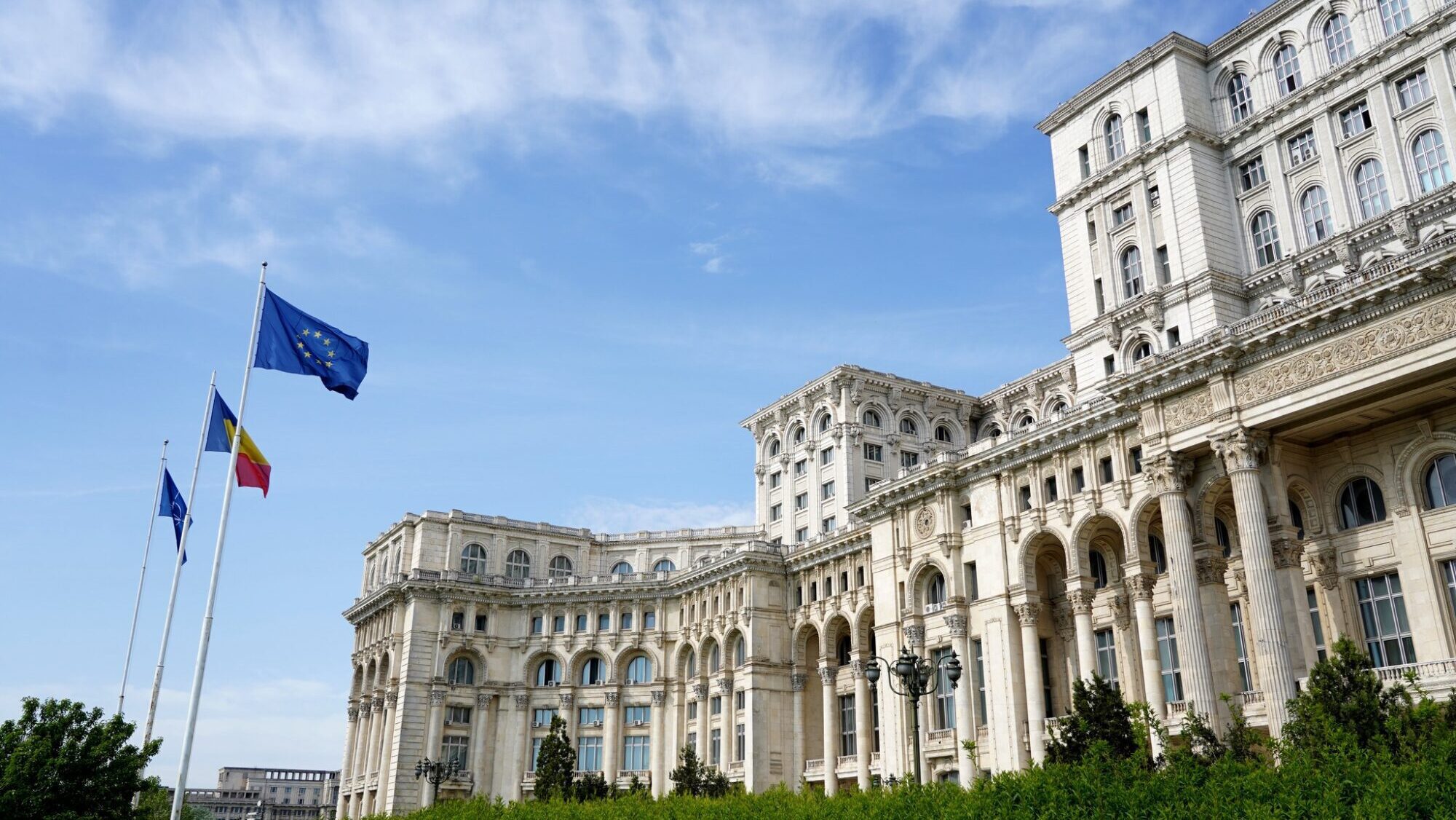
Palace of Parliament, Bucharest
Photo: Romanian Parliament / Facebook, June 2023
The pro-EU parties have successfully concluded the first day of coalition talks by agreeing to form a wide ‘democratic’ coalition that will include all four of them in the new government, leaving only the three Eurosceptic nationalist forces in opposition.
They also agreed to unite behind a single presidential candidate for the March election, which was supposed to be held last Sunday before the Constitutional Court, citing foreign interference, annulled it at the last minute.
There’s no agreement yet on who this candidate would be, and further intense talks are expected in the coming days.
The four coalition partners include the parliamentary election winner social democrat PSD (S&D), the center-right PNL (EPP), the liberal USR (Renew), and the ethnic Hungarian party RMDSZ/UDMR (EPP).
This means the opposition will consist of only those that are regarded by others as ‘far right’: AUR (ECR), SOS Romania (NI), and POT.
🇷🇴 On 1st December 2024, #Romania|ns elected a new parliament.
— All About Elections 🗳️🌍 (@electionsstats) December 6, 2024
The coalition parties of PSD, PNL and UDMR lost massively, while right-wing to far-right parties gained.
On 8th December, Romania will hold a president. runoff between far-right indep. Georgescu and liberal Lasconi. pic.twitter.com/Mb7HdH2PeY
Agreeing on a four-party grand coalition on the first day of talks is somewhat surprising, as PSD-PNL-RMDSZ would have been able to reach the required threshold even without the USR, and the socialists were especially against including the liberals at first.
Although now primarily seen as a center-right free-market party, the liberal USR began as an anti-establishment progressive force that grew out of a series of anti-corruption (and anti-PSD) protests throughout the late 2010s and still defines itself as the antithesis of the socialist-ruled mainstream political discourse.
While there’s little chance that the prime minister’s seat will be given to anyone but the PSD, the liberals’ motivation to participate in the government might be ensuring that at least the presidential palace won’t fall into socialist hands.
Likewise, the PSD might have only allowed the USR into the coalition to avoid splitting the ‘democratic’ vote in the presidential election and potentially pave the way for a nationalist victory.
It will be hard to agree on any potential candidate, but there seems to be consensus that they shouldn’t come from among the current party leaders or the original candidate pool as none of them stood a solid chance against the nationalist Călin Georgescu in the now-annulled race, including the runner-up USR-leader, Elena Lasconi.
The union of these strange bedfellows is made even more absurd by the fact that the USR (and most other parties) blame the ruling PSD for the unprecedented political turmoil that the annulment of the presidential election caused, not to mention the irrevocable loss of public trust in the institutions that’s supposed to safeguard—not cancel—democracy.
The leading theory that’s popular among many observers and liberal parties is that the socialist-linked Constitutional Court first banned one of the nationalist candidates, SOS’ Diana Șoșoacă, from participating in the race in the hope that it would concentrate the ‘far-right’ vote in the hands of AUR’s George Simion, against whom the PSD’s outgoing prime minister Marcel Ciolacu could win more easily in the runoffs after building a united front to ‘save democracy.’
If this was the plan, then two things went wrong immediately. First, it wasn’t AUR but the little-known independent Georgescu who scooped up the nationalist vote and qualified for the runoffs—a candidate who was much harder to campaign against than Simion, who had already been established as ‘evil’; and second, Ciolacu ended up only in third place, with Lasconi beating him by a few thousand votes.
So the court began to course-correct by first ordering a recount, hoping that it would give Ciolacu another chance, but failed to find any additional votes. Then, when all other options had been exhausted and Georgescu was an arms’ length from the presidency, it pulled the plug, canceling the election altogether.
We don’t know how much of this is true, but Lasconi and the USR seem to believe this scenario. There might be evidence of foreign interference during the initial campaign, but most parties agree that what has been made public so far is not nearly enough to justify such a dramatic and clearly undemocratic move.
In short, the new Romanian coalition is a product of this exceptional situation that forces traditional enemies into the same camp to fend off the growing nationalist front that’s been propped up by both the PSD’s long-term political and short-term strategic failures. By annulling the vote, the establishment might have delayed the collapse of the country’s post-communist political order for a time, but it can’t prevent what’s inevitable.
